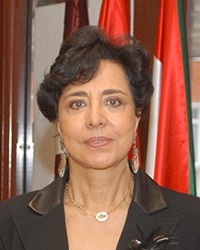"The current context gives Marseille an opportunity to play a pioneering role in decentralised cooperation"

When I'm asked about Marseille and the region's place in the Mediterranean, I always say that the area's many assets mean it is able to play a key role as a model, or even a pioneer, of decentralised cooperation.
The colourful collage of its cultural diversity, the tremendous work of public, private and civil society stakeholders to breathe new life into different areas, its history and its capacity to look ahead in time and in space, towards the Mediterranean, have all enhanced its sense of identity and outward-looking nature.
Given the current context, Marseille has a chance to forge this role for itself. The EU is currently playing the fire-fighter; it is overcome by crises and lacking a strategic vision. It seems to have forgotten its Mediterranean history. And for the time being, the city’s great rival, Barcelona, is focused on the status of Catalonia.
Although its special spark is still felt, the Mediterranean is also experiencing a painful period. The rise of extremism on both its shores has served to move them further apart, introducing a host of new dangers in both areas. How do we bring them closer together again?
Well, despite the devastating conflicts, political instability and daily drama and tragedy for some populations in the Mediterranean basin, there is hope. A number of studies clearly show that in spite of backwards attitudes here and there, young people and women in particular, are demonstrating an astonishing determination and open-mindedness, to forge a dignified future for Arab societies.
Marseille and its region must take this opportunity to support, strengthen and promote this hope.
To do so, Marseille will have to begin by facing its own demons, by properly addressing the occasional blemishes that tarnish its image. Clearly, also, the city's leaders must rally together to meet the enormous challenges.
Of course, the city and the surrounding areas lend themselves to differentiated approaches from the strategies adapted to the needs of other countries and regions in the Mediterranean basin. They should be implemented in a spirit of absolute equality, sharing and solidarity.
However, Marseille and its region will not be able to pursue this ambition alone. They will have to work hard to convince France to put the Mediterranean back at the top of its agenda.
Assia Bensalah Alaoui
Ambassador at large of HM Mohammed VI, King of Morocco
Co-President of OCEMO



